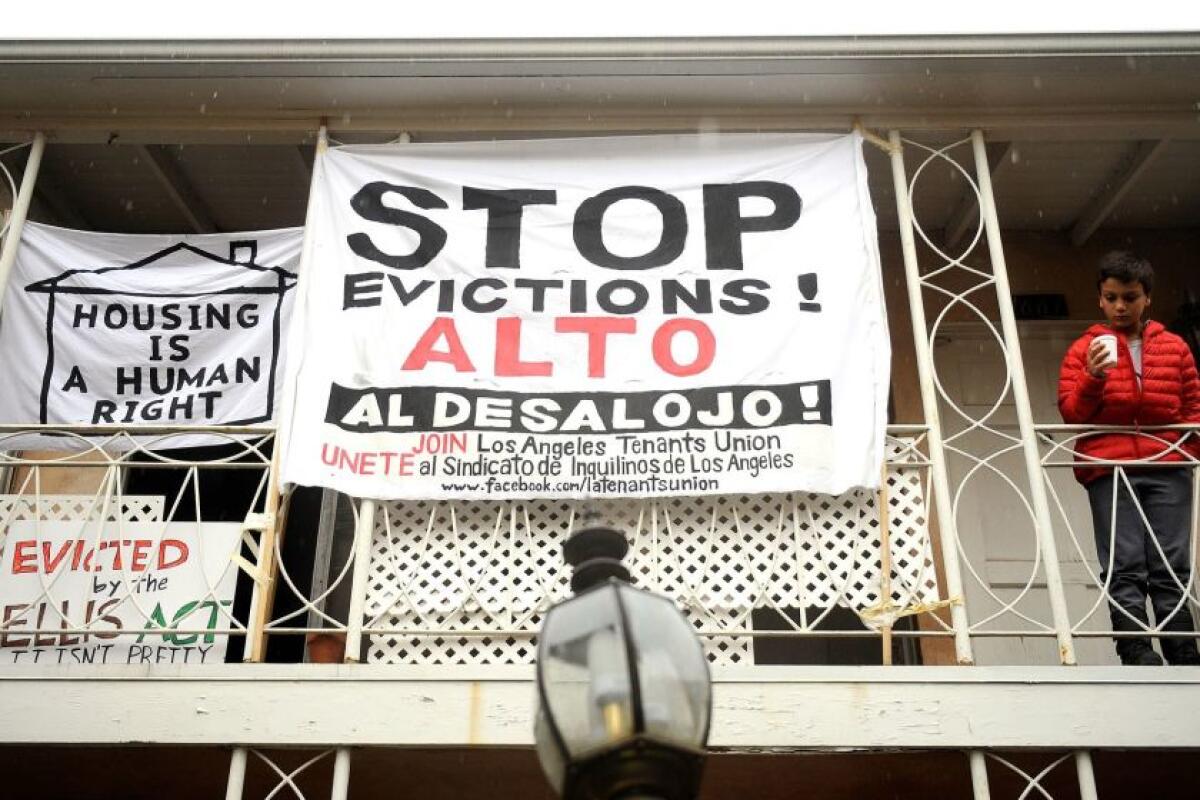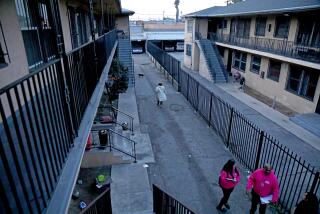California legislative leaders move to extend COVID rent relief, eviction protections

SACRAMENTO — A week before California’s eviction moratorium was scheduled to expire, top Democrats in the Legislature announced a proposal on Thursday to extend COVID-19 pandemic protections for tenants by another three months so the state can finish sending out rent relief payments.
Assembly Bill 2179 would move the date on which landlords may initiate eviction proceedings from April 1 to July 1, as long as an application is submitted by March 31 to a rent relief program. Democratic legislative leaders said the extension would give applicants more time to receive the help and avoid losing their homes.
“We need to protect eligible renters who have applied for relief funds, but haven’t received them yet, or who will apply before the March 31 deadline,” Senate President Pro Tem Toni Atkins (D-San Diego) and Assembly Speaker Anthony Rendon (D-Lakewood) said in a statement. “We made a commitment to those who are in line and they shouldn’t be harmed because of how long the process is taking. That’s why AB 2179 will receive quick action in both the Assembly and Senate.”
For two years, lawmakers have negotiated legislation to protect renters against eviction if they have faced pandemic-related hardship. California received a total of $5.2 billion in federal funds to establish a rent relief program last year to help alleviate the burden of debt for renters and landlords. The state created its own program and is responsible for doling out around $2.6 billion of that total amount. Some local governments chose to set up their own programs, and they received the rest of the money.
The state-run program allows both landlords and tenants to apply for the help, but they are required to prove COVID-19 hardship to qualify. The program was set up to prioritize low-income residents at greatest risk of eviction, and pays up to 100% of rent and utility in arrears.
Seventy-one percent of likely voters consider housing affordability a big problem, according to a March poll by the nonpartisan Public Policy Institute of California, and 44% of those surveyed said they were worried about making their rent or mortgage payments. Forty-eight percent of low-income renters struggled to pay rent in January and February of this year, according to the California Budget and Policy Center.
The legislation would not change the March 31 deadline to apply for rental assistance, but would prevent the evictions of those still in the queue who have not yet received the funds, either on the state or local level. Advocates in recent weeks had raised concerns that thousands of Californians could face eviction even though they had pending applications.
“It is on us to take care of the thousands of Californians — landlords and tenants alike — who reached out to state programs for help and still have their applications pending,” said Assembly Member Tim Grayson, a Concord Democrat who co-wrote the legislation. “It would be cruel, wasteful and unfair to subject these Californians to eviction or the loss of rental income now, when they have done everything asked of them, and distribution of their emergency rental assistance is imminent.”
The state-run relief program has particularly struggled to keep up with demand. Of the 489,879 households that have applied for the aid, 214,247 have been served, according to a state dashboard that tracks the program. The average assistance totals $11,488.
The state has paid out $2.46 billion in relief and requested in November another $1.9 billion from the U.S. Department of the Treasury. So far, the federal government has sent another $200 million to California, though state officials expect more to arrive soon. The dashboard does not provide data for how much the local-run programs have administered.
Lawmakers in February approved a law to free up state funds and expedite the backlog of applications, which also eased restrictions on who could qualify for the relief. That intervention allowed the state to quicken its pace in processing payments by 25%, said Geoffrey Ross, a deputy director at the state Department of Housing and Community Development. The agency was processing about 8,000 payments per week before the Legislature intervened, Ross said, and has since bumped that up to 10,000.
“The department remains absolutely committed to paying every eligible applicant,” Ross said, adding that the department’s goal is to finish the payments by early summer.
“We are not going to rest until the final payment has been made,” he said.
The new bill would also supersede local eviction moratoriums and establish more uniform rules for when evictions can start. It is scheduled to be heard in a legislative committee on Monday. In a post responding to the proposal, California Apartment Assn. Communications Director Mike Nemeth said the legislation would “maintain a consistent standard for eviction protections across California” and prevent “a hodgepodge of local rules for tenants, landlords and courts to navigate.”
“The California Apartment Association is hopeful that the state will have worked through all pending (rent relief) applications and made the appropriate payments before June 30, making AB 2179 the final extension of the moratorium and eliminating any argument for local eviction moratoria to take its place,” Nemeth wrote.
The Alliance of Californians for Community Empowerment, however, called for stronger guardrails. In a written statement, the group said that the state should extend the deadline for when households can apply for assistance and let local jurisdictions implement their own protections for renters. Anything short of that, the group wrote, would turn the rent relief program “into a landlord bailout that results in thousands of families on the streets.”
“If the Governor and State Leadership understood the level of fear and instability felt by tenants whose landlords are eager to evict them, they would do more,” the statement read. “We are still in a pandemic, and thousands of families are far from recovery.”
More to Read
Sign up for Essential California
The most important California stories and recommendations in your inbox every morning.
You may occasionally receive promotional content from the Los Angeles Times.











